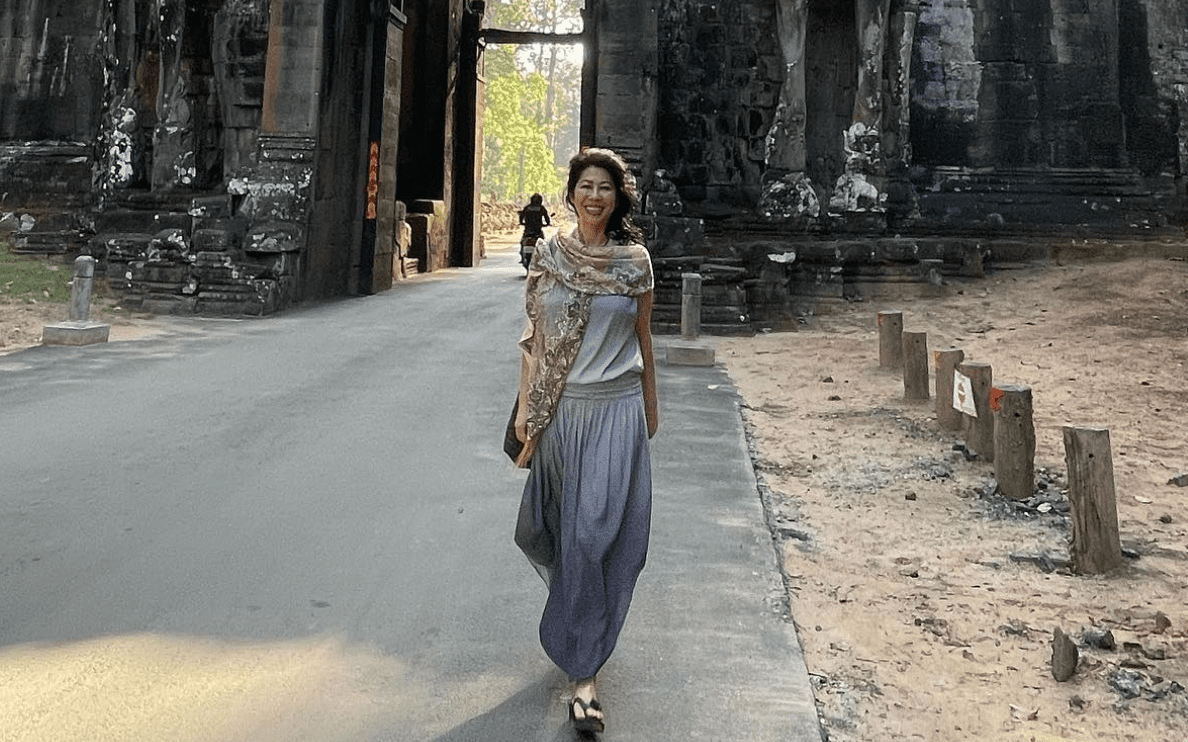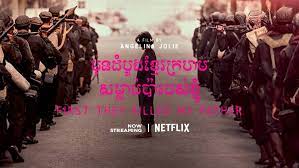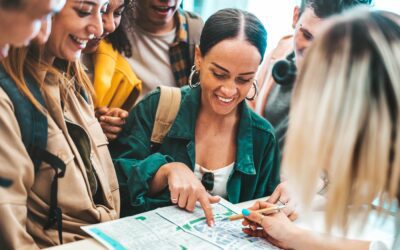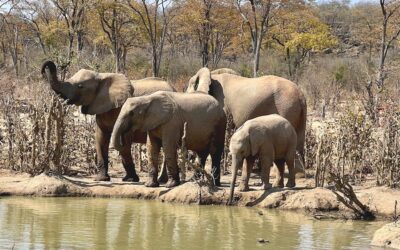Last updated on November 19th, 2023
‘When women are in tune, we can change the world’
By Carolyn Ray
It’s not every day you have an opportunity to sit down with one of the most remarkable women on the planet and learn about kindness, compassion and gratitude from a woman who has witnessed both the best and worst of humanity. Loung Ung was five years old when the Khmer Rouge army stormed into Phnom Penh in April 1975, forcing her family to flee their home. For the next four years, the family hid their identities in order to survive. Without the protection of her family, Loung was trained as a child soldier in a work camp for orphans, her siblings were sent to labor camps, and were not reunited until the Khmer Rouge was destroyed.
“I encourage everyone to read this deeply moving and very important book. Equal to the strength of the book, is the woman who wrote it. She is a voice for her people and they are lucky to have her.” – Angelina Jolie, UNHCR Goodwill Ambassador.
A Q&A With Loung Ung
Carolyn: What was it like for you to tell your story of your early life in Cambodia?
Loung: Five million Cambodians survived the Khmer Rouge and you know, many, many millions of people survive some kind of wars in their nations and state every single day every single year. Not to count the millions more of women who survived domestic wars happening in their homes.
It’s knowing that I’m not alone that I’m grateful for. And knowing that I can tap into the energy of my grandparents. My grandmother who left China escaping the revolution there, and then came to Cambodia. My mother who did what she could to help us survive. I’m very grateful to be connected to all these strong women who helped me be here today. When I started telling my story, for me writing is survival. My friend read a quote somewhere that said, ‘if you’re not crying. you’re writing and if you’re not writing you’re crying.’
How has writing helped you?
Writing is my therapy. I can only cry so much, but writing makes sense for me. I lost my brother on December 22 in 2021 and I don’t know how to grieve him except through writing. I don’t know how to put words together. I can say words that don’t mean anything, but for words to mean something to me I have to put them down. I started writing my journal before I learned how to speak English. I think there’s also a safety in it – you can write on your own pace and your own time in your own safe space without people judging you. If you speak broken English or you’re not speaking complete sentences or if you want to write angry words, if you wanted to write dark words or red words you can just it’s just it’s a sanctuary. I attempted to try to get my work published when I was working in Washington, DC at the campaign to ban landmines.
I wanted to use my story of survival to talk about the larger issues of war and peace of why we not only need to help people survive their wars, but by getting rid of weapon systems. By helping people heal, we help people have a chance to survive the peace. Not to just survive the wars, but once they’ve survived the wars we’ve got to assist people to survive the peace. And for me writing is really trying to survive the peace.
Carolyn: How has the pandemic has affected our connection as women?
Luong: The pandemic has separated us. Women are so intuitive and in tune to the earth, to our community, to our children, to our friends to each other. And when we are in tune, we can change the world. It’s wonderful because the mental rugged individualism in the US often makes us believe that success achieved alone is much more sweet than success achieved as a group. But as women, we aren’t connecting because the pandemic has separated us.
We women are so adept at finding all the instances to connect: the library, the grocery stores, the church, the community. If ever there’s five minutes when we’re together, we were good at connecting. Now all these five-minute spaces have been taken from us because of the pandemic. Somehow, we’ve lost those many, many, many five minutes.
It’s requires a committed effort to connect with others. It is making a commitment to ourselves that we will connect to another person, to our community, to our heart and that means being conscious about it, being aware of it, being aware of what we’ve lost so that we can find it again.
But there have been benefits too…
I think our separation has made us forget how to listen to the vibration of our heartstrings. And whichever issue your heartstring vibrates the most is what you pay attention to.
I also really believe in compassion and kindness. I think this is a power that we have that we underestimate and underutilize. Compassion, kindness, decency, are tools that religions and gods have been named after in the eastern religions.
My sister still lives in Cambodia. I left Cambodia when I was 10 and she was 12. We didn’t see each other for 15 years. When I left Cambodia, we ended up in America and the US got involved in the Vietnam war and then Vietnam went into Cambodia with 180,000 troops. When Vietnam was in Cambodia and didn’t leave until 89’ and so, the US didn’t normalize a diplomatic relationship with Vietnam until 1991 and with Cambodia in 1993. Therefore, refugees like myself were not allowed to go home without diplomatic relations – your passport could not get you to Cambodia safely and then get out.
What was it like seeing your sister after so many years?
So I couldn’t go home to see my sister until I was 25 and she was 27. And by then she had grown up in the village, arranged in a marriage at 17, given birth to five children where there was no running water, electricity. Where she thought ultrasound was science fiction. And when I went back to see her, she had lived this completely different life.
I went to Cambodia with my American filter glasses of what they didn’t have, what she didn’t have. Running water, hot and cold that with a little bit of mix magically formed together to make warm. How amazing is that, never had it.
I was talking to my sister and just feeling some sadness travelling to Cambodia that first few times and to other countries like China and Thailand. Feeling such sadness and such heaviness and such guilt for what I had in the west and what she didn’t have. Until my sister sat down with me one day and she said she was so sad for me. I asked her why, and she said, who brushes your hair? And I said what do you mean? I was wearing my hair long at the time and I told her how I used conditioner and then it’s untangled within seconds.
And she thought that was sad, because she and her cousins and her best friend, they go to the river, they wash their hair and then they sit at the edge of the river with their feet in the water and they untangle each other’s hair. And they talk and they laugh and they love and they connect. I started not liking hair conditioning after that. I was missing out on that. She didn’t have hair conditioner but she had connection. And when women get their periods, they sit around with family members and the aunts and the uncles and the grandparents and grandmother and they talk. You know, they have discussions and they share.
The first time I had – that I got my period, I thought I was you know, dead or dying. Because when I had last seen that much blood coming out of a human body they were dead in a war zone and I didn’t have that conversation about periods with anyone.
Now I go to Cambodia and when it rains I see children going outside catching rainwater with buckets and pots and pans and I see them laughing. I no longer worry about where are they going to get the water. I am now filled with joy realizing and seeing what they have, as opposed to what I was thinking they didn’t have. She really changed my mind, I learned so much.
What’s your message to women?
The call to action for women is one, realizing that we have power. We have power. Ginger Rogers does it in a long flowing gown and high heels and going backward. It’s so important that women realize that we have so many powers to make differences in our lives right now. We don’t have to wait.
I hear often people say I will do this when junior goes off to grade school or when you know, Maddie goes off to high school. Or when Tommy goes off to college, or when my grandkids grow up. A call to action is now. A call to action is now, whatever changes you want to see it has to happen now.
We cannot wait, and whether as a dancer or as a homemaker or as a singer, as a musician or as an activist that we need to find whatever our abilities and our capabilities and abilities and time and we need to make a call to action a part of our daily life.
And it could be that the call to action is to build a library or the littlest library in your neighbourhood that you see popping up around. It could be a call to action is for a healthier community or a better community or better schools.
Whatever it is it is within our abilities and we don’t have to do it in someone else’s voice we have to do it in our authentic voice. In our voice as a mother in a voice as a Cambodian, in our voice as you know, a trans person. Whatever it is our voice we have to do it in our most authentic voice. It took me so long to speak up because I was afraid my English was broken and people wouldn’t understand me.
But when there’s abuse we know when something is going on the heart knows and you just you have to do it. And so, for me a call to action is all of that. It’s knowing you have the power to make a difference and you got to do it now and you do it in your own authentic voice.
Learn more about Loung Ung on her website here.
More Women Changing Travel
wmnsWORK: Fostering the Next Generation of Women Entrepreneurs in Travel
JourneyWoman is supporting wmnsWORK, which helps women entrepreneurs overcome barriers to starting a business, with a scholarship.
JourneyWoman Webinar: Journeys With Purpose With Humanitarian Carla Geyser on October 15
Join our webinar with humanitarian Carla Geyser to learn the audacious treks she designs for courageous women to raise funds for wildlife.
Finding Your ‘Sisters’ Through Travel: Sisterhood Travels Helps Widows and Solo Women Build Self-Confidence
After her husband and long-time travel partner passed away, Stacey Ray started Sisterhood Travel to help other women build their confidence through travel.








0 Comments
We always strive to use real photos from our own adventures, provided by the guest writer or from our personal travels. However, in some cases, due to photo quality, we must use stock photography. If you have any questions about the photography please let us know.
Disclaimer: We are so happy that you are checking out this page right now! We only recommend things that are suggested by our community, or through our own experience, that we believe will be helpful and practical for you. Some of our pages contain links, which means we’re part of an affiliate program for the product being mentioned. Should you decide to purchase a product using a link from on our site, JourneyWoman may earn a small commission from the retailer, which helps us maintain our beautiful website. JourneyWoman is an Amazon Associate and earns from qualifying purchases. Thank you!
We want to hear what you think about this article, and we welcome any updates or changes to improve it. You can comment below, or send an email to us at [email protected].